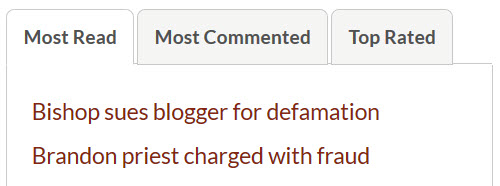Read the whole article here:
AN ANGLICAN JOURNALIST has been charged with making libelous comments about a bishop in the Anglican Church of Canada. On Feb.19th, David Jenkins was served personally with a statement of claim for defamation of character from the diocesan Bishop of Niagara, Michael Bird.
[…..]
Another Anglican bishop, Grant LeMarquand, the Bishop for the Horn of Africa, who, like Bird, has also been criticized on Samizdat, commented in an online discussion on the Anglican Journal website: “I have been criticized on the same blog site but it never crossed my mind that a lawsuit was an option. In fact, that the Bishop of Niagara would even consider such an action as this attempt to silence criticism and dissent should make us all cringe. Should the bishop win his case, the principle of free speech will be diminished and all Canadians will all [sic] be lessened as a result.”
Jenkins said that “the pleadings are now closed and we will commence the discovery process on Oct. 17th.”
As the article notes, the next step in my little adventure is the Examination for Discovery which will occur on October 17th. For those who feel inclined to pray, I would value your prayers for wisdom on that date.


